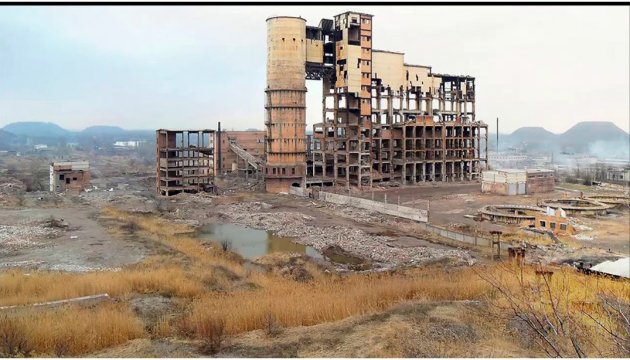
The ghost of nuclear threat is rising in Donetsk
The causal relationship between environmental change and armed conflict is generally perceived as war being caused by the effects of climate change. Less attention is allotted to environmental disasters resulting from armed conflict. A radioactive time bomb is ticking away as a result of the war in Ukraine, at the Yuny Komunar (Yunkom) mine. In 1979, an industrial underground nuclear explosion with a TNT energy equivalent yield of 200-300 tonnes (0.2-0.3kt), the first of its kind in a densely populated and intensively exploited coalmining district, was produced there. The section, codenamed Klivazh Facility, contains the chamber of the underground nuclear explosion and adjacent jointing zone.
The purported idea behind the underground nuclear explosion was to assess its effectiveness for reducing the rate of sudden coal and gas outbursts in the process of coal bed workings. Today, as a direct result of the war in Ukraine, the Klivazh facility, and adjacent areas demand attention to nuclear safety and security in Ukraine and in the European and Russian territories.
In 2018, Russian-backed occupation forces in Donetsk ceased drainage works at the Yunkom mine. Located in the town of Bunhe, (temporarily occupied area of Donetsk region), the mine is hydraulically interconnected with several other chemically polluted ones. Their saturation creates a risk of nearly uncontrolled flooding of the Klivazh facility. Like a dirty bomb, this radioactive-chemical cocktail poses a large-scale environmental threat affecting the ecology, human health and lives in areas far beyond Ukrainian borders should it seep through to the Sea of Azov and the Black Sea making its way into the Mediterranean.
While all the pertinent data related to the nuclear testing in Yunkom is in Moscow’s hands, neither the competent authorities of Ukraine nor the International Atomic Energy Agency (IAEA) have had access to nuclear facilities and materials in Ukraine’s occupied territories for over seven years. In April of this year, President Zelensky warned, “the lack of such information is a problem that has no borders, and its consequences will have no boundaries.” Earlier this year, Ukraine’s Ambassador to the United Nations, Serhiy Kyslytsya, noted the grave radioactive threat posed by the Yunkom mine and called upon the UN to carry out an environmental impact assessment in the temporarily occupied territories of Donetsk and Luhansk regions. Importantly, these territories used to be the industrial heart of the Soviet Union with a lot of high-risk pollutant enterprises. Without proper oversight and maintenance, they stand to add to the critical environmental threat.
Access to the territory is pivotal to preventing the disaster; upright international engagement is particularly crucial in this instance. Russia maintains that it is not a party to the war in Ukraine and instrumentalizes this position to legitimize the Russian occupation authorities in certain areas of Donetsk and Luhansk regions. In the case at hand, Russia has put forth that in order for the international community to gain access to the toxic sites, it must address entry issues with the DNR directly. The truth is, however, that it is not the occupation administration but Moscow who holds the key to preventing an international radioactive catastrophe or causing one.
Nuclear safety is of paramount, global importance. It is the responsibility of states, particularly those in the United Nations Security Council, the IAEA and, as it pertains to Ukraine, the Budapest signatories, as well as the Trilateral Contact Group and the Normandy Format participants. A rules-based society is undermined not only by belligerent states, but by states who do not keep their promises, particularly in non-proliferation commitments. The time may be approaching where the states who pledged Budapest assurances will feel the consequences of their inaction. As the future of the highly politicized Minsk Agreements is in limbo, a less-politicized matter such as an impending international environmental calamity should be used to facilitate access and forward movement aimed at resolving the conflict in Ukraine. It is very well possible that nature is providing an opening for badly needed international cooperation in the settlement of the Donbas war.
Lada L. Roslycky
Black Trident Defense & Security Group, Founder




